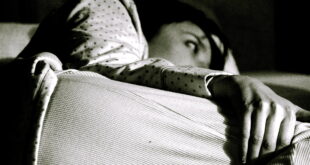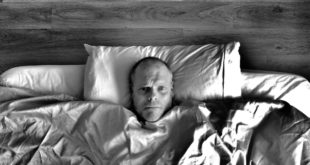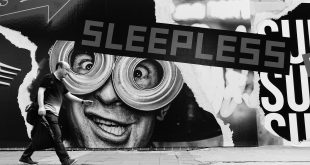Many college students experience symptoms of insomnia. Unfortunately, college students who experience problems with sleep may also be at risk for engaging in unhealthy behaviors such as maladaptive eating patterns and behaviors. However, little is understand about why insomnia and aspects of eating are related. The current study examined difficulties regulating emotions as a possible explanatory mechanism in the association between insomnia symptoms and eating expectancies. Participants were racially/ethnically diverse sample of 1,589 college students (80.4% females; Mage = 22.2 years, SD = 5 .27) from an urban university. Results indicated that greater insomnia symptoms were related to increased difficulties regulating emotions, which in turn, were related to greater expectancies of eating to help manage negative affect, expectancies of eating to alleviate boredom, and expectancies of eating to lead to feeling out of control. Thus, insomnia symptoms may intensify the dysregulation of emotions, and as a result of such dysregulated state, individuals may learn eating can be perceived as helpful in managing negative mood states, lead to feeling out of control, and prevent feeling bored. The results from the this study may serve to inform the development of more targeted weight management or eating education programs for college students experiencing insomnia symptoms.
Read the full paper: Kauffman, B. Y., Bakhshaie, J., Lam, H., Alfano, C., & Zvolensky, M. J. (in press). Insomnia and eating expectancies among college students: the role of emotion dysregulation. Cognitive Behaviour Therapy. doi:10.1080/16506073.2018.1466910

Photo by: Steven Saing
 Cognitive Behaviour Therapy A peer reviewed, multidisciplinary journal devoted to the application of behavioural and cognitive sciences to clinical psychology and psychotherapy.
Cognitive Behaviour Therapy A peer reviewed, multidisciplinary journal devoted to the application of behavioural and cognitive sciences to clinical psychology and psychotherapy.




